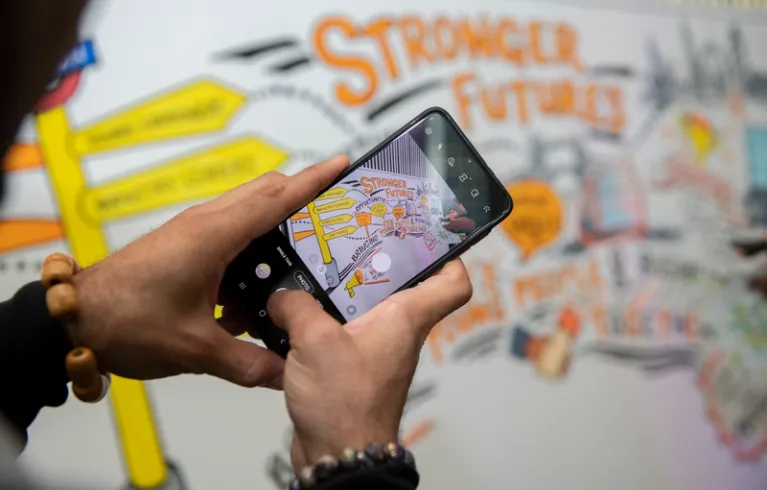
Key information
Publication type: General
Contents
5 sections
The programme
Project 10/10 is a collaboration between Camden and Islington NHS Foundation Trust, Camden Council, Coram's Fields and MAC UK. The VRU funded research by Project 10/10 to develop insights and learning of community-based crisis intervention and trauma support for young people through the lens of the 10/10 project.
Project 10/10 challenges the traditional understanding of a mental health service by moving away from referral forms, diagnostic eligibility criteria, aiming to co-produce a service with young people that meets their needs at a place and time that suits them.
The programme brings together psychology and youth work and is informed by the Integrate Model devised by MAC UK, a charity working to improve excluded young people’s access to mental health support and information. It draws on psychological theories including AMBIT (Adaptive Mentalisation-based Integrative Treatment), Narrative Therapy, Attachment Theory, and Community Psychology ideas.
Research questions
The project aimed to build on existing practice, community engagement and intervention work to:
- identify examples of current support that is accessed such as bereavement and counselling services and where there are gaps in provision, quality and access
- identify examples of community-based trauma support for families and friendship groups
- identify the barriers to accessing services and make clear recommendations on how to reduce these, giving specific consideration to cultural sensitivities
- develop a pilot for creating a safe place for young people to access culturally sensitive crisis and trauma support.
Methodology
This report summarises the Camden based programme, exploring the rationale, context and Theory of Change and inviting feedback and reflection from young people, community members and practitioners.
Key insights and emerging best practice
The report reflects on the structure of Project 10/10 and the experiences and perceptions of staff and service users:
- Trauma and safety: the research indicates that some service users reported an improved trust of professionals, and increase in prosocial activities and improved engagement with mainstream services.
- Supervision: all Project 10/10 staff received weekly supervision from a clinical psychologist in the team, reporting increased confidence working with this cohort.
- Peer referral model: the report notes project 10/10’s peer referral model enables young people to access support at their own pace and on their terms. Young people also became more engaged with how the project operates, working together with staff to host an event showcasing the project.
Recommendations
Based on the experience implementing the programme, the report makes some broad recommendations:
- Build safe relationships: Safe relationships can develop when marked by consistency in approach and availability, transparency and acceptance, through which the young person can begin to explore their own minds. The report noted project 10/10’s peer referral model allows for a head start in building trusting relationships between staff and young people.
- Build safe spaces: work with young people to have their voices heard and to provide feedback to the community agencies who hold the power, for example local authorities, police and schools.
- Develop supported staff teams: Professionals who work with young people impacted by youth violence are exposed to a risk of vicarious traumatisation. Clinical supervision and reflective practice are an important part of ensuring staff teams are supported to help young people whilst maintaining a healthy and necessary awareness of their own mental health and emotional wellbeing.
- Support a multi-agency approach: Providing agencies such as the police, youth workers and psychologists with more support to do their jobs effectively, and improving their access to reflective supervision, trauma training, cultural competency training and peer support.
Related documents
Project 10/10 report on community based crisis intervention